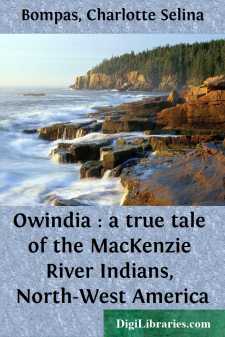Categories
- Antiques & Collectibles 13
- Architecture 36
- Art 48
- Bibles 22
- Biography & Autobiography 813
- Body, Mind & Spirit 142
- Business & Economics 28
- Children's Books 15
- Children's Fiction 12
- Computers 4
- Cooking 94
- Crafts & Hobbies 4
- Drama 346
- Education 46
- Family & Relationships 57
- Fiction 11829
- Games 19
- Gardening 17
- Health & Fitness 34
- History 1377
- House & Home 1
- Humor 147
- Juvenile Fiction 1873
- Juvenile Nonfiction 202
- Language Arts & Disciplines 88
- Law 16
- Literary Collections 686
- Literary Criticism 179
- Mathematics 13
- Medical 41
- Music 40
- Nature 179
- Non-Classifiable 1768
- Performing Arts 7
- Periodicals 1453
- Philosophy 64
- Photography 2
- Poetry 896
- Political Science 203
- Psychology 42
- Reference 154
- Religion 513
- Science 126
- Self-Help 84
- Social Science 81
- Sports & Recreation 34
- Study Aids 3
- Technology & Engineering 59
- Transportation 23
- Travel 463
- True Crime 29
Owindia : a true tale of the MacKenzie River Indians, North-West America
Categories:
Description:
Excerpt
THE STORY OF OWINDIA.
A pretty open spot on the bank of the Great Mackenzie River was the place where Owindia first saw light. One of the universal pine forests formed the back ground, while low shrubs and willows, with a pleasant, green carpet of mossy grass, were the immediate surroundings of the camp.
The banks of the Mackenzie often rise to a height of sixty feet above the river. This was the case in the spot where Michel the Hunter had pitched his tent, or "lodge" as it is called. A number of other Indians were camped near, led thither by the fish which is so abundant in our Northern rivers, and which proves a seldom failing resource when the moose or reindeer go off their usual track. The woods also skirting the river furnish large supplies of rabbits, which even the Indian children are taught to snare. Beavers too are most numerous in this district, and are excellent food, while their furs are an important article of trade with the Hudson Bay Company; bringing to the poor Indian his much prized luxury of tea or tobacco, a warm blanket or ammunition. As the Spring comes on the women of the camps will be busy making "sirop" from the birch trees, and dressing the skins of moose or deer which their husbands have killed in the chase. There are also the canoes to be made or repaired for use whenever the eight months' fetters of ice shall give way.
Thus we see the Indian camps offer a pleasant spectacle of a contented and busy people; and if they lack the refinement and luxuries of more civilized communities, they have at all events this advantage,—they have never learnt to need them.
Michel, the Indian, was a well-skilled, practised hunter. Given a windy day, a good depth of snow, and one or two moose tracks on its fair surface, and there was not much chance of the noble beast's escape from Michel's swift tread and steady aim. Such is the excitement of moose-hunting; and such the intense acuteness of the moose-deer's sense of smell and hearing, that an Indian hunter will often strip himself of every bit of clothing, and creep stealthily along on his snow-shoes, lest by the slightest sound he should betray his presence, and allow his prey to escape. And Michel was as skilled a trapper as he was hunter; from the plump little musk-rat which he caught by the river brink to the valuable marten, sable, beaver, otter, skunk, &c., &c., he knew the ways and habits of each one; he would set his steel trap with as true an intuition as if he had received notice of the coming of his prey. Many a silver fox had found himself outdone in sharpness and cunning by Michel; many a lynx or wild cat had fought for dear life, and may-be, made one escape from Michel's snares, leaving perhaps one of its paws in token of its fierce struggle, yet had perished after all, being allured in some opposite direction by tempting bait, or irresistible scent laid by the same skilful hand. In bear hunting also Michel was an adept, and he lacked not opportunity for this sport on the banks of the Mackenzie....


